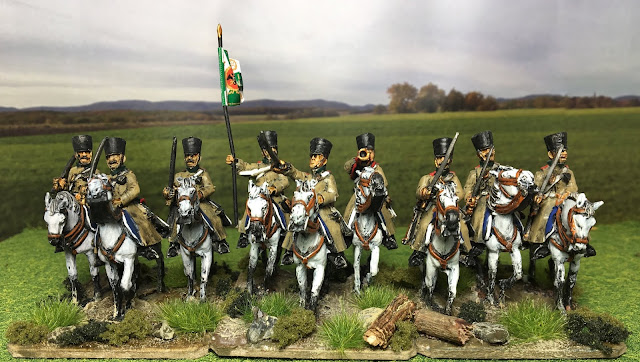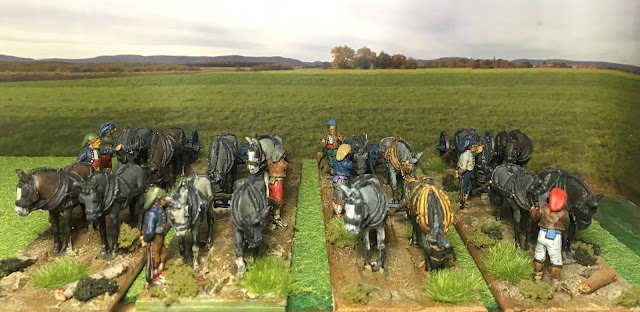As commanders of armies, albeit of miniature armies, we are exempt from consequence. Our battles conveniently end when we accumulate enough victory points, or when domestic duties call or have simply had enough and the troops go back into their boxes to fight another day. We don’t have to live with the damage that our decisions create. A defeat does not end our careers or bring shame and disgrace on our families. We don’t have to write letters to the relatives of our little men who are killed in battle, nor do we have visit battlefields and hospitals to face the human wreckage. I am thankful for that.
But the concept of consequence or risk interests me. I want to explore how to introduce it into a wargame. Brigadier Peter Young, a decorated WWII commando officer and avid wargamer, reckoned that the only way you could reasonably recreate risk or consequence in a wargame would be to make players hand over every figure that is lost as a casualty to the opposing player who must immediately smash it flat with a hammer. That would be extreme, although it would sure make you think twice of sending that freshly painted cuirassier regiment against that infantry square because there is always a chance to win - you may need to roll three sixes and he may need three ones, but those are acceptable odds, aren’t they? You can keep that hammer away from my figures thank you! Maybe there a less extreme method?
In my recent series of French in Egypt games (a sort of loosely structured campaign) casualties were carried forward from one game to the next. I thought that might be a useful means of taming the wargamer’s natural urge to throw every unit at their disposal into the fight. Afterall in any sort of campaign you need to manage your reserves carefully. But that did not act as a sufficient deterrent to committing everything in each game as though there was no tomorrow. And there was no tomorrow because it’s only a game and all the players wanted to be a part of the action so nothing was held back. They knew that if they won the game the series of games ended. Which led me to the conclusion that wargamers being wargamers will always commit whatever forces are available because the consequences of doing so have no real impact on them.
The reason I am thinking about all of this is that I have a large Crimean War game planned for our next annual Wargames weekend planned for sometime next year. The plan I have for this is for a scrambling defence in which one side will be outnumbered, holding a good position, with other troops coming up and the option of calling on still more reinforcements. I want those reinforcements to come at a cost, but how to make that cost relevant? There is no point in simply allocating a victory point deficit for taking them, because any wargamer worth his salt will play the odds.
The answer may lay in the way we play our games at that weekend, which is a that we play four games on consecutive days. What if my Crimean game was up first and penalty for taking those reinforcements was applied to the next day’s game? It doesn’t have to be too punitive, but maybe some units have low or limited ammunition, or where a player originally had four units in his command one is removed. It just needs to be something to make them think about the implications of their actions. What if that penalty could be applied across more than two games, perhaps compounding as the week went on? What if one side deliberately chose a defeat, but were able to extract the bulk of their force intact to fight another day? Could this mean that they get some advantage in the next game? I have already begun discussions with two other game organisers and I want to see if this idea has a pulse.
But enough of things philosophical, what about the toys? Well there aren’t any this week, although much has left the painting table this week - they are still in the basing queue. There will be much to show after the weekend I am sure.




























